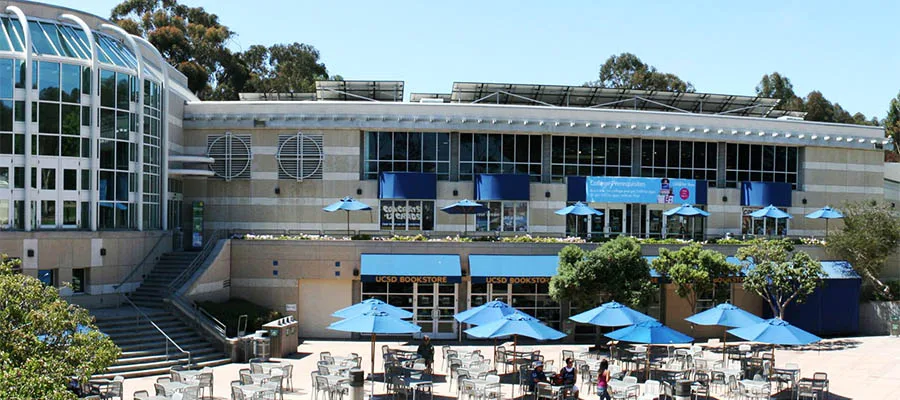By ItsSoSanDiego April 19, 2024
In the heart of UC San Diego’s bustling campus lies the vibrant Sunshine Market, a beloved spot cherished by students for its eclectic offerings and laid-back atmosphere. Yet, this campus icon is about to undergo a significant transformation—one that has stirred up waves of concern and discontent among the student body.
Just over a year after the Housing Dining Hospitality (HDH) department took over Audrey’s Café, another staple of student life, Sunshine Market is slated to become an HDH-run Amazon Just Walk Out (JWO) market. The news, delivered via recent emails to UCSD Bookstore and Sunshine Market employees, has sent shockwaves through the campus community, sparking debates about the implications for student jobs and the erosion of campus culture.
The transition to JWO technology is framed by UC San Diego Today as a move to enhance efficiency and convenience for students and staff alike. Proponents argue that it will streamline the shopping experience, extend operating hours, and provide easier access to groceries, particularly for residents of the forthcoming Pepper Canyon West neighborhood.
However, students are voicing their frustrations loud and clear Reports of erroneous charges, long entry lines, and the sterile ambiance of JWO markets have left many disillusioned. Privacy concerns loom large, with the revelation that Amazon’s AI technology requires human intervention for transaction reviews adding fuel to the fire.
Many students, expressing apprehension about the encroachment of technology on campus life. “I don’t see the need or appeal for JWO markets,” she remarks, emphasizing her commitment to privacy and resistance against unnecessary data collection.
The decision to transition Sunshine Market into an HDH-run establishment has also sparked fears about the erosion of campus culture and the displacement of local vendors. The market’s diverse array of specialty items and partnerships with local businesses may become casualties of this move, replaced by standardized offerings from HDH suppliers.
Moreover, the potential impact on student employment looms large. While HDH assures that current employees will still be needed for customer service duties, concerns persist about job security and the erosion of meaningful employment opportunities for students.
The timing of this transition, coinciding with Amazon’s announcement of phasing out JWO technology in its full-size grocery stores, adds another layer of uncertainty. While UCSD’s markets may be spared from this change, the broader implications of relying on Amazon technology remain unclear.
As students grapple with these developments, questions linger about the university’s commitment to supporting student welfare and preserving campus culture. While HDH pledges to host focus groups to gather student feedback, the suddenness of the transition has left many feeling blindsided and apprehensive about the future.
In the face of these challenges, students are mobilizing to advocate for their concerns and push for greater transparency and accountability from university administrators. The fate of Sunshine Market serves as a microcosm of broader debates about the intersection of technology, commerce, and student welfare on college campuses nationwide.
As UCSD charts its course forward, the voices of students will undoubtedly play a pivotal role in shaping the future of campus life and ensuring that the university remains true to its commitment to serving the needs of its diverse community.

